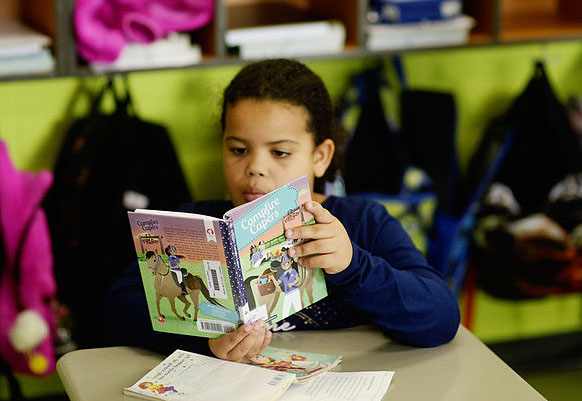
In SCORE’s report, Urgency for Literacy, we highlight the literacy crisis Tennessee faces: Currently, just one in three Tennessee students are able to read proficiently by the end of third grade, and once they fall behind, it is unlikely they will catch up.
The Leading Innovation for Tennessee Education (LIFT) network is a group of dedicated district, school, and classroom leaders from across Tennessee who have been working since the spring of 2016 to overcome this literacy crisis by providing teachers with high-quality instructional materials and aligned supports in English language arts (ELA) classrooms.
Over the past four years, the network has made significant progress:
- Improvements in classroom instruction: This year, 58 percent of observed lessons reflected the demands of Tennessee’s rigorous standards, compared with only 6 percent during initial reviews.
- Improvements in classroom assignments: This year, 76 percent of sampled assignments were grade-appropriate, compared with only 8 percent during initial reviews.
- Improvements in student learning: This year, 62 percent of students met the demands of grade-level standards on assignments, compared with only 5 percent during initial reviews.
While TNReady testing was canceled this year in response to the COVID-19 pandemic, we are confident these results would have translated into real changes in assessment results, building on the successes of last year where LIFT districts saw growth on third–grade ELA that was 25 times greater than the state as a whole.
In LIFT’s latest annual report, they highlight lessons learned this past year as they worked to realize impact in early literacy.
The first key learning is that teachers need sustained and targeted support, development, and feedback over several years to realize deep instructional change. While high-quality instructional materials are a foundation for this change, without protected time and sustained support to internalize the questions and tasks in their materials, teachers will not make deep changes in their practice.
The second key learning is that a relentless focus on measuring progress and a commitment to continuous improvement are key to achieving deep instructional change. Grounded in a shared vision for excellence, districts in the LIFT network have systematically gathered quantitative and qualitative data on stakeholder perceptions and changes in instruction over the past four years. Monitoring changes in the day-to-day experiences of students, in addition to lagging indicators like state assessment results, has supported reflection and provided guidance for any needed adjustments.
The third key finding, which has implications for districts everywhere, is that during extended school closures due to COVID-19, high-quality instructional materials supported the transition to equitable, rigorous, and meaningful at-home learning. As in the regular classroom setting, a commitment to leveraging high-quality instructional materials frees up teachers’ valuable time to focus on how to deliver instruction instead of what instruction to deliver. It also ensures that students are getting a consistent experience from classroom to classroom and from school to school, which matters especially in ELA where background knowledge is both cumulative and critical for advancing skills.
The final key finding is that high-quality instructional materials and efforts to engage families in literacy improvement work are instrumental in COVID-19 recovery. Due to the coherent and well-defined scope and sequence of high-quality instructional materials, districts were able to pinpoint exactly what instruction students missed and forecast where they might have gaps. Additionally, districts in the LIFT network have worked to build strong relationships with families and empower them with suggestions for how they can support reading skills at home. This foundation will be important if future periods of remote learning are required.
After four years, the work of the LIFT network has produced compelling evidence that working with high-quality instructional materials can improve both instructional quality and student outcomes. But this work takes time, sustained support for educators, and a relentless focus on and response to leading indicators of progress. We will continue to share their learnings, outcomes, and resources as they test new ideas and study their impact on students.
Courtney Bell is SCORE’s senior director of research and innovation.
More about early literacy in Tennessee:
